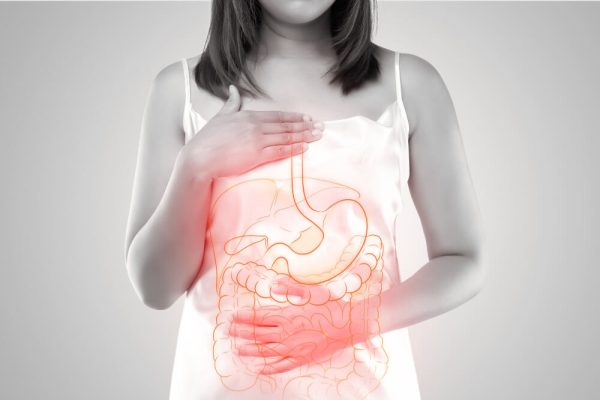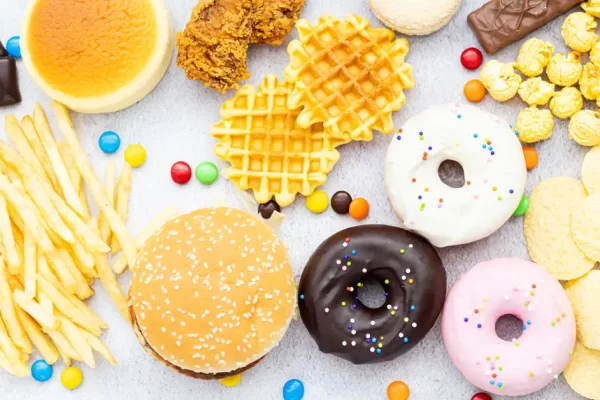Keto diet is much in trend and most fitness and diet enthusiasts have tried it already. Everyone seems to be talking about this diet. Nonetheless, some of the medical professionals are not recommending it to the people.
It is always advised that you should first have thorough knowledge about it after which you will be enabled to make a well-informed decision about your diet change. In this article, we have discussed all that you need to know about the Keto diet.
Table of Contents
What is a keto diet and how it works?
In this diet, you are advised to consume food, which is low in carbohydrate level and have high-fat content.
When a person is on a ketogenic diet or keto diet as it is normally called, the body secretes molecules called ketones, which it consumes, as an alternative energy source.
When you eat food, which has a lower level of carbohydrates, with a medium level of proteins and high levels of fat, your liver secretes ketones, which are formed using fat.
Normally your body consumes carbohydrates to produce energy but when you are on a ketogenic diet, your body changes it’s an energy-producing mechanism and starts producing energy using fat, which is in your diet and most importantly, excess fat that is stored in your body.
What to eat when on keto?
In the ketogenic diet, your body needs to go in the state of ketosis so that it will produce energy using the excess fat that is stored in your body and burns the fat in reality. As mentioned above, you need to consume food, which is low in carbohydrates and high on fats content. So, when on a ketogenic diet the things you can eat are mentioned below:
- Meat, sea fish and eggs
- Natural fat like olive oil and butter
- High-fat sauces and spreads like garlic butter
- Full-fat dairy products like full-fat cheese, full-fat butter, whole cream, whole milk, and more
- You can eat the vegetables that grow above the ground especially leafy vegetables and green vegetables
- A moderate number of nuts and berries
Yes, these are all the things you are allowed to eat, when on the Keto diet.
What can you not eat on keto?
There are some items whose consumption is prohibited when on the keto diet. Especially the food items that contain high levels of sugar and starch are big No-No.
Those items are as listed below:
- Bread
- Pasta
- Banana
- Mango
- Potatoes
- Chocolate
- Sweets in general
Pros of a Keto diet
Keto Diet or say ketogenic diet provides all the benefits that a normal diet containing a lower level of carbohydrates and a higher level of fats may provide. Only the difference is that it is more effective and shows fast results.
-
Burns excess fat accumulated in your body
When you are on a keto diet, your body starts producing energy using the excess fat that is deposited in the body, thus helps to reduce the weight effectively.
-
Control of the appetite
When people are in the state of ketosis, the fat it requires to produce energy is already present in the body and therefore your appetite is reduced automatically.
-
Brings blood sugar level under control
The science has proved that a ketogenic diet can effectively manage diabetes and, in some cases, it can also reverse it.
-
Improves your health markers
The diet, which is low in the levels of carbohydrates, is said to improve the level of health markers such as HDL.
-
Increase in stamina
Normally a person on a Keto diet experiences a hike in his energy and as a result of improvement in stamina.
-
Soothes Irritable Bowel Syndrome
Keto diet is lighter on the stomach and therefore it soothes the stomach and can be used for the treatment of irritable Bowel Syndrome.
Cons of a Keto diet
Although there are many benefits of a keto diet, there are also some disadvantages associated with it. As you slowly change the functioning of the body you may notice some side effects.
-
Keto Flu
Most of the people who start with the keto diet usually get what is called Keto Flu.
-
Leg Cramps
Having a leg cramp is a very common side effect of a ketogenic diet.
-
Constipation
Yes, the Ketogenic diet can cause constipation, especially in the beginning, as your body needs some time to adapt to this new mechanism.
-
Bad Breath
The low level of carbohydrates in the diet can result in bad breath. When people first take up keto diet, they usually have a fruity smell to their breath. In some people, even sweat can have a fruity smell.
-
Increase in The Heart Rate
In the initial weeks after taking up a Ketogenic diet, a person can experience increases in heart rate. But do not worry, as it is very normal. Another reason behind this increase in the heart rate is decreased in the level of water intake and also decrease in the level of salt intake, because of which the heart needs to pump faster to provide blood to various organs.
How to start a Keto diet?
First and foremost, reduce your carbohydrate intake by increasing the fiber intake. Include salad in your diet to start this. Proceed further by controlling the portions of proteins you consume. Keto diet allows you to include protein in the diet however the portion should be restricted. This is because high levels of protein get converted into glucose in the body. This glucose further reduces the process of ketosis.
Undoubtedly Keto diet is a high-fat diet. However, you need to eat only the required amount of fat and not excess. Unless you are starving do not snack unnecessarily. If you can manage also add intermittent fasting in the mix. Add some sort of physical activity, which will drastically increase the level of ketones secreted in the body.
Last but not the least, have a minimum of minimum 7 hours of sound sleep as sleep deprivation increases the level of sugar in the blood and also the level of stress which negatively impact the process of ketosis.
Is keto good for you?
Just like any other form of the diet, this diet has some advantages as well as disadvantages associated with it. Thus, it is up to you to decide whether you should or should not take up a Keto diet. You should consult a dietician and take his/her help to know if this is the best option for you or not.





